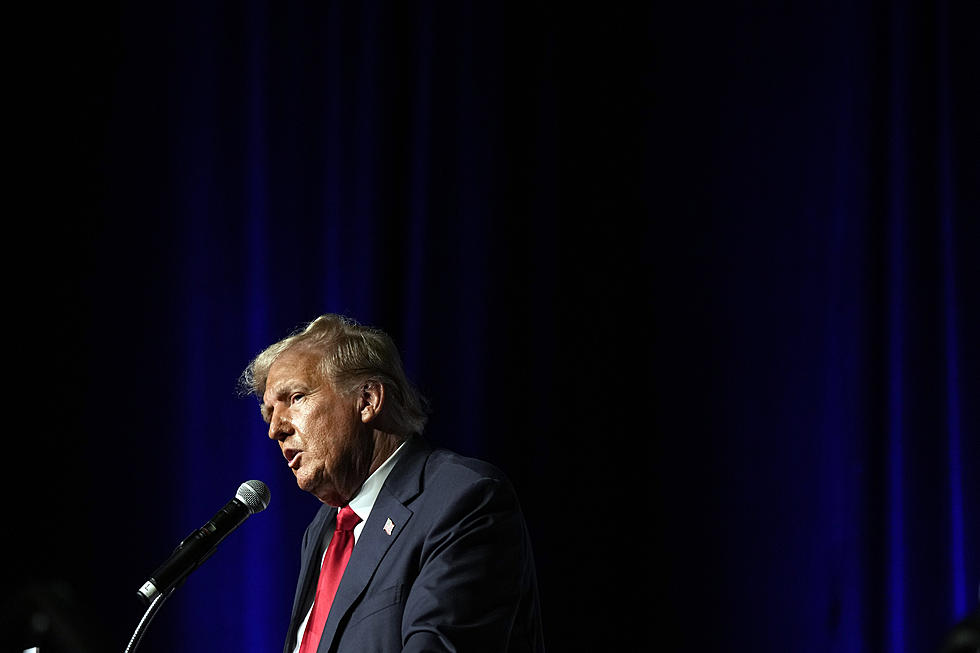
In courtroom faceoff, Michael Cohen says he was told to boost Trump’s asset values ‘arbitrarily’
By JAKE OFFENHARTZ and JENNIFER PELTZ Associated Press
10/24/2023, NEW YORK (AP) — In a courtroom showdown five years in the making, Donald Trump's fixer-turned-foe Michael Cohen testified Tuesday that he worked to boost the supposed value of the former president's assets to "whatever number Trump told us to."
It was a fraught face-to-face encounter between Trump and the now-disbarred lawyer who once pledged to "take a bullet" for him. Cohen eventually ended up in prison and became a prominent witness against his former boss in venues from courthouses to Congress.
Now, Cohen is a key figure in New York Attorney General Letitia James' lawsuit alleging that Trump and his company duped banks, insurers and others by giving them financial statements that inflated his wealth.
"I was tasked by Mr. Trump to increase the total assets, based upon a number that he arbitrarily elected," Cohen testified, saying that he and former Trump Organization finance chief Allen Weisselberg labored "to reverse-engineer the various different asset classes, increase those assets, in order to achieve a number that Mr. Trump had tasked us."
Asked what that number was, Cohen replied: "Whatever number Trump told us to."
Trump denies James' allegations. Outside court, he dismissed Cohen's account as the words of "a proven liar" who pleaded guilty to tax evasion, lying to Congress and campaign finance violations.
"I'm not worried at all about his testimony," Trump said, adding: "He's not a credible witness."
The former president and Republican 2024 front-runner voluntarily came to court for the highly anticipated testimony, attending the Manhattan trial for a sixth day this month. Cohen has said he hadn't seen Trump for five years until now.
"Heck of a reunion," Cohen said during the court break. Earlier, he had insisted outside court that "this is not about Donald Trump vs. Michael Cohen or Michael Cohen vs. Donald Trump. This is about accountability, plain and simple."
As Cohen testified, Trump at times whispered to his lawyers. At other points, the former president hunched forward in his seat, watching intently, or leaned back with crossed arms.
Cohen, meanwhile, looked away from his former employer, keeping his eyes on state lawyer Colleen Faherty.
Trump, Cohen said, would summon him and Weisselberg and say, for example: "I'm actually not worth four and a half billion dollars. I'm really worth more of six."
Cohen said he and the finance chief would then "inflate the value" of Trump properties by pegging them to "comparable" real estate that was actually different — brand-new developments with higher ceilings, more sweeping views and no rent regulation, for instance.
Drawing emphatic head-shaking from Trump, Cohen said Weisselberg indicated that he spoke to Donald Trump Jr. and siblings Eric and Ivanka Trump before preparing their father's financial statements.
The two sons are defendants in the lawsuit and deny wrongdoing. An appeals court dismissed Ivanka Trump from the case in June.
Judge Arthur Engoron already has ruled that Trump and his company committed fraud. The trial involves remaining claims of conspiracy, insurance fraud and falsifying business records.
Trump says his assets were actually undervalued, and he maintains that disclaimers on his financial statements essentially told recipients to check the numbers out for themselves.
He has derided the case as a "sham," a "scam" and "a continuation of the single greatest witch hunt of all time." The ex-president argues that the case is part of an effort by James and other Democrats to drag down his campaign.
Cohen spent a decade as Trump's fiercely loyal personal lawyer before famously breaking with him in 2018 amid a federal investigation that sent Cohen to federal prison. He is also a major prosecution witness in Trump's separate Manhattan hush-money criminal case, scheduled for trial next spring.
James has credited Cohen as the impetus for her civil investigation, which led to the fraud lawsuit and trial. She cited Cohen's testimony to Congress in 2019 that Trump had a history of misrepresenting the value of assets to gain favorable loan terms and tax benefits.
Earlier this month, Trump dropped a $500 million lawsuit that accused Cohen of "spreading falsehoods," causing "vast reputational harm" and breaking a confidentiality agreement for talking publicly about the hush-money payments. A Trump spokesperson said the former president was only pausing the lawsuit, while campaigning and fighting four criminal cases, and would refile later.
Cohen took the stand after William Kelly, an attorney for Trump's longtime former accounting firm, Mazars USA. The firm cut ties with Trump last year after James' office questioned the reliability of his financial statements.
Kelly said that the firm's decision was based on the attorney general's lawsuit and on Mazars' own investigation, which suggested that Weisselberg had provided "compromised" financial statements. Mazars said it hadn't found any "material discrepancies" in the statements as a whole, however.
Defense lawyer Jesus M. Suarez suggested that the accounting firm abandoned its longtime clients to get in the attorney general's good graces and head off potential legal problems. But Kelly insisted "there was no currying favor."
"It was being a good corporate citizen and explaining what we do," he said.
Trump's attorneys sought to delay the trial Tuesday, arguing that coronavirus cases in James' office put the former president's health at risk. The attorney general's office, in a statement, said it had taken all steps to notify the relevant parties and had followed health guidance.
Trump later complained outside court that "what they did with COVID in the courtroom was a disgrace," but he and the attorneys at the defense table with him didn't don masks.
___
Associated Press writer Michael R. Sisak contributed.
More From Newstalk 1290









